Consumers’ appetite for ethical products is increasing. Here’s how you can take the moral high ground and give your store the edge
Selling ethical products, while undoubtedly worthy, has rarely been viewed as a core business driver by convenience store owners. For retailers with often limited shelf space, the economics of stocking a Fairtrade brand, for instance, at the expense of a big seller may not historically have stacked up.
But times are changing. Not only are big brand owners such as Nestlé, Mars and Tate & Lyle committed to Fairtrade, but demand among consumers for more ethical products is on the increase.
A recent report from HIM Research & Consulting found that 82% of shoppers consider themselves environmentally friendly and 87% are interested in buying more ethical products. And although demand for ethical products is currently seen as a trend for the more affluent or green-leaning consumer, HIM concludes that such concerns are set to go mainstream in the years ahead.
Other evidence supports the finding that ethical considerations are having an impact at the till. MediaCom research has revealed that increasingly socially-conscious consumers are abandoning brands they do not feel have positive values. The research showed that 40% of consumers have either stopped using or never used a brand because of its values or behaviours, with 63% believing brands have a responsibility to give back to society and 80% stating they must take steps to minimise environmental impact.
Social consciousness is especially strong among younger shoppers. Although 35% of respondents said they had bought a branded product specifically because of its chosen values or beliefs, this figure rose to 49% in those aged 18 to 24.
There’s also a financial incentive for convenience retailers to stock ethical products. Almost half (49%) of the respondents to the MediaCom survey stated they would be willing to pay more for a brand that supports a cause which is important to them, a figure that rose to 60% in 18- to 24-year-olds.
The message seems clear: retailers can win customers and grow sales by stocking a strong range of ethical products. But what do we mean by ethical and how can retailers drive sales of ethical products?
For many shoppers, the easiest way to recognise the ethical credentials of a product is through a certification mark. The Fairtrade label is perhaps the best known, but others such as RSPCA Assured meat, MSC fish and Soil Association Organic are all growing in consumer recognition and take-up.
“We know that six out of 10 consumers use an ethical mark to decide whether or not a product’s ethical,” says James Bennett, head of commercial partnerships at the Fairtrade Foundation. “What we’re also seeing is consumers wanting to make a positive impact not through giving, but through purchasing.”
Kate Mills, who runs Heath Stores in Horsmonden, Kent, with her husband Andrew, believes that the shop’s wide range of Fairtrade products creates a strong point of difference. “We have Fairtrade teas and coffees, pasta, rice, bread, chocolate and cards. Fairtrade cards are one of our best sellers; you can’t get them anywhere else.”
While ethical products may not account for the majority of the store’s total turnover, Kate believes it has an indirect benefit as people who come in specifically to purchase a Fairtrade or local product will typically be people who end up filling a basket.
It also helps improve the perception of the quality of Heath Stores’ overall product offer, she believes. “We find the Fairtrade products, and those from Traidcraft in particular, tend to be a higher quality product,” says Kate. As a result, where some retailers might stock a well-known brand as their ‘better’ or ‘best’ tier, Heath Stores will often stock a Fairtrade product along with the own brand.
The store is also an active supporter of Fairtrade Fortnight, during which it installs a table in the middle of the shop where customers can sample Fairtrade products.
She says it’s essential that retailers work hard to promote ethical products. “You have to market it. You can’t expect these products to sell themselves, you do have to educate people and to push it.”
Danielle Pinnington, founder and owner of shopper insight firm Shoppercentric, agrees that ethical can be “a real point of difference”. She believes that convenience shoppers are open to ideas and interesting ranges, particularly if it incorporates local produce, an observation that rings true for Mehmet Guzel, who owns two Simply Fresh stores in London, in Bethnal Green and Old Oak.
Mehmet has a philosophy of prioritising fresh, healthy, local and ethically-sourced food and drink over more standard lines. He makes a point of stocking a wide variety of loose and organic vegetables including items grown in the local community garden and products sourced from niche local suppliers.
“We do very well with local,” says Mehmet. “We try to help local producers grow their business - even people starting out from their own kitchens.”
Customers can also choose a more environmentally-friendly option by refilling their own containers with wine or detergent, and he makes a point of merchandising ethical products at eye level in order to drive sales.
Not everything ethical is going to work, Mehmet admits. “Ultimately, if a product doesn’t sell we can’t stock it, but we always try our best to keep it on shelf as long as possible. We find our customers are happy to see that range of products.”
Mehmet is an example of a retailer who has built a strong ethical ethos into his stores. However, at Brighton’s HISBE, ethical represents its entire business model. The store is run as a social enterprise, prioritising small, local producers and brands that trade responsibly.
More than 80% of the price of HISBE’s milk goes straight back to the farmer; meat is sourced from small farms in Sussex; the retailer sells much of its dry food via dispensers to reduce packaging; and cleaning and toiletry brands are the best in their field for being planet-friendly and responsible.
If this all seems a rather daunting prospect then there are simple techniques retailers can adopt to drive sales of ethical products.
Fairtrade’s Bennett advises retailers to range products that are ethical next to each other, “as we know that consumers may come in to buy a Fairtrade coffee and leave with something else”.
Brands such as Clipper, Café Direct, Percol, Green & Black’s, KitKat and Mars tend to work well in a convenience setting, according to Bennett, while other more niche products such as honey, jam and nuts can also be popular. The Fairtrade Foundation also reports growing demand for certified flowers and wine.
Most local wholesalers will stock the key Fairtrade brands, while for retailers looking for more niche products, Fairtrade supplier Traidcraft carries an extensive range of products.
A commitment to ethical retailing doesn’t end with the products, of course. Many retailers are taking steps to ensure their entire operation is more environmentally friendly. Independent retailer Andrew Thornton is aiming to send zero food waste to landfill by making use of all edible food. Food that isn’t bought by customers by the point it expires is offered to One Support, an organisation in Belsize Park which aims to reintroduce homeless adults to living independently. The contribution from Thornton’s Budgens allows One Support to run cooking classes and breakfast clubs.
Food waste is also on the agenda for Sid Ali, who has started selling items that have reached their sell-by date at prices as low as 1p at his Nisa Stores in Mintlaw, Maud, Stuartfield and Strichen in Scotland to prevent the food going to waste.
Both are examples of how ethical retailing is not just good for the soul; it’s increasingly good for business, too.
How to capture ethical shoppers

A recent HIM report identified the ‘Geo Conscious Shopper’ as one of six macro trends shaping the future of convenience. Here are the report’s top tips on how retailers can capitalise on this trend:
Retailers need to understand who they are as a brand, what they stand for and who their shoppers are or aspire to be
Retailers should be reassuring customers about their eco-friendly initiatives by highlighting eco-friendly labelling on products and stocking more of these products. Eye-catching displays can also make it easier for the shopper to be aware of any initiatives, while social media and company websites are cost-effective ways to spread the word
Retailers should actively shout about the social and environmental measures they are taking. Communication in store can help build credibility about those transparency initiatives
Retailers should tap into people’s growing willingness to volunteer in their local community by creating spaces for shoppers to engage in acts of compassion in the community. Suppliers, meanwhile, have the ability to make such initiatives easier to access for shoppers by linking initiatives with products.
Certification schemes
The marks to look out for

Fairtrade is perhaps the best-known ethical certification scheme, but other schemes that guarantee sustainable production methods are becoming more mainstream in the convenience sector:
RSPCA Assured
The label guarantees that animals have been reared to high welfare standards. The Co-op is the third largest retailer of RSPCA Assured products in the UK, while Spar and Budgens retailers also stock them. RSPCA says one in three people now recognise the RSPCA Assured brand - up from 15% when it launched in May 2015.
Soil Association Organic
The Soil Association is the UK’s largest organic certification body, responsible for certifying more than 70% of the organic market. In its 2017 Organic Market Report, the Soil Association revealed that the UK organic market is now in its fifth year of growth and worth more than £2bn. Independent retailers increased sales of organic products by 6.3% in the past year, ahead of the supermarkets.
Marine Stewardship Council (MSC)
The blue MSC label ensures that fish has been responsibly caught by a certified sustainable fishery. MSC research suggests a growing trend for sustainable seafood with shoppers spending more in this category for the third year running. Birdseye recently became the UK’s first frozen brand to reach 100% MSC certified.















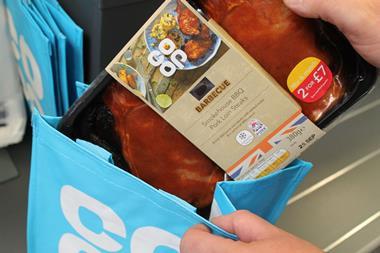
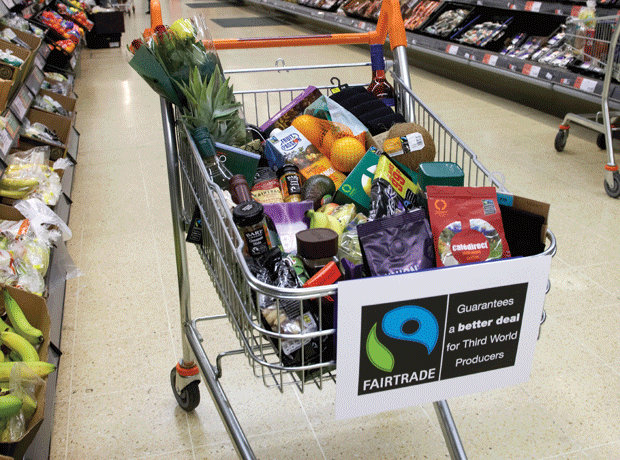
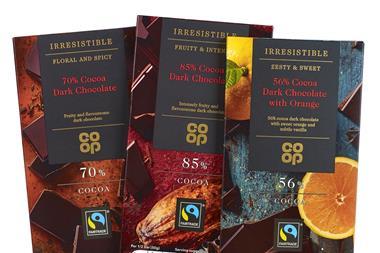
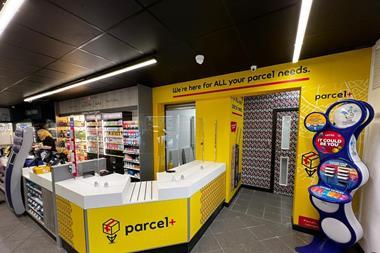

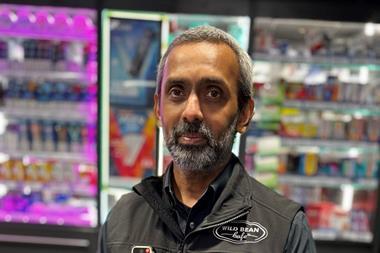
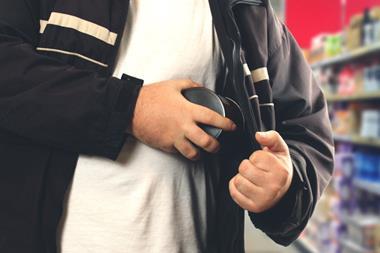
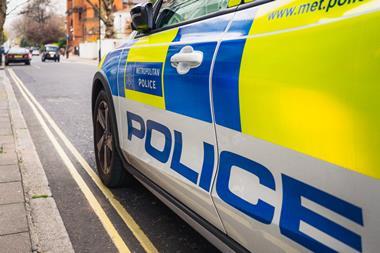

No comments yet